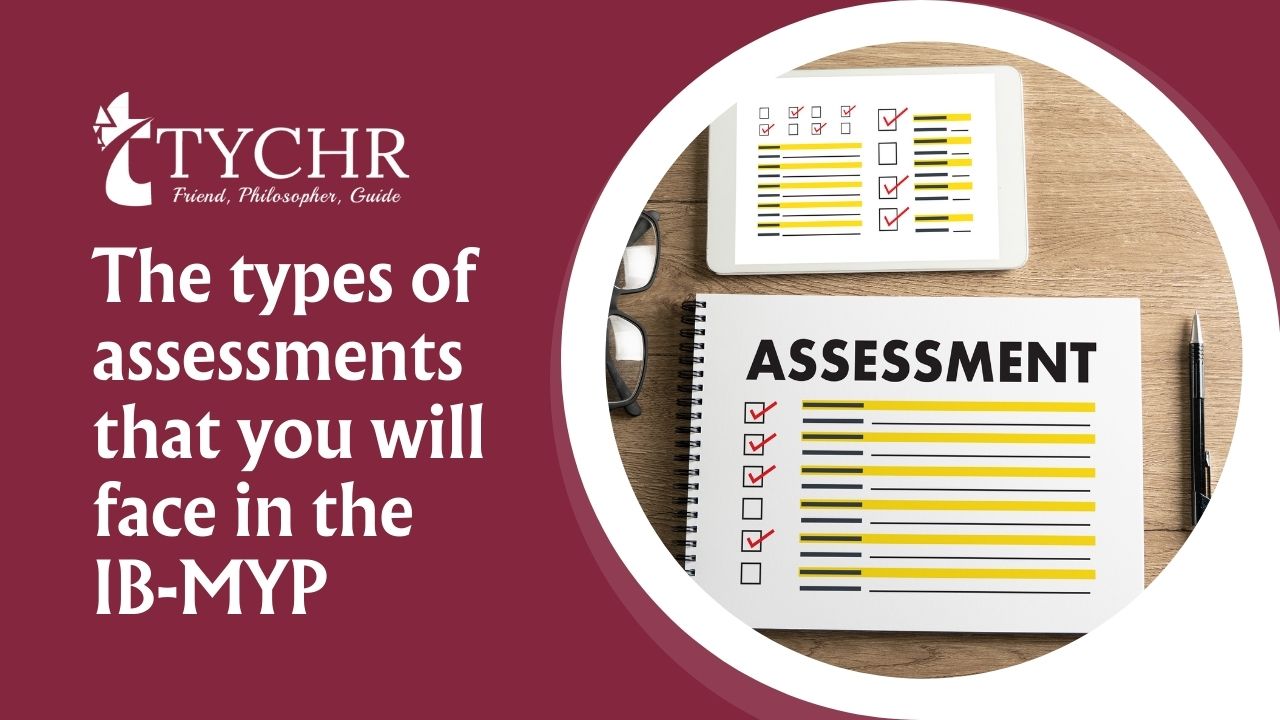50+ IB Psychology IA Ideas
check out our results
Request Free Trial Class
IB Psychology IA Ideas
IB Psychology IA ideas list is available online with expert guidance and examples. The list contains 20 to 50+ IA ideas, including research questions and topic descriptions and IB Psychology Internal assessment examples. Choosing the perfect IB Psychology IA topic can be made easier by approaching it methodically and evaluating existing research before conducting further research on a topic Psychology IA ideas
- Tversky and Kahneman 1974
Anchoring Bias and its effects on decision making
a.) Anchoring Bias and its effect on product price estimation
Research Question: Does listening to a high or low anchor (given price) influence the estimated price of a common grocery item (jar of Nutella)?
Aim: The study aims to determine whether providing a high or low numeric anchor can influence price estimation of common items. Two groups will be shown either the high or low anchor before being asked to estimate its true price. This investigates anchoring bias and its goal is to replicate the study of Tversky and Kahneman (1974).
Theory: Tversky and Kahneman showed that people are swayed by initial numbers, even when those numbers may be incorrect. Anchoring bias highlights the unconscious nature of cognitive heuristics, where judgment is skewed by irrelevant information. Using implausible anchors (e.g., price $10 or $30) helps reveal how strongly the heuristic overrides logic, offering evidence that the effect is not limited to reasonable anchors.
Analysis: Mean estimates will be compared between groups using an independent samples t-test. A significant difference would indicate an anchoring effect. Standard deviation will illustrate data variability. If anchoring occurs despite familiarity, it strengthens the claim that cognitive biases influence even factual estimations. Limitations include potential familiarity with the item and individual price sensitivity. Results may help explain how anchoring impacts marketing strategies and pricing perceptions.
b.) Anchoring Bias and its effects on the estimation of distance
Research Question: Does an arbitrary distance anchor affect participants’ estimates of the distance between two cities?
Aim: The study aims to determine whether providing a high or low numeric anchor can influence distance estimation between two well known cities. Two groups will be told either the high or low anchor before being asked to estimate the true distance. This investigates anchoring bias and its goal is to replicate the study of Tversky and Kahneman (1974).
Theory: Tversky and Kahneman showed that people are swayed by initial numbers, even when those numbers may be incorrect. Anchoring bias highlights the unconscious nature of cognitive heuristics, where judgment is skewed by irrelevant information. Using implausible anchors (e.g., price $10 or $30) helps reveal how strongly the heuristic overrides logic, offering evidence that the effect is not limited to reasonable anchors.
Analysis: Mean estimates will be compared between groups using an independent samples t-test. A significant difference would indicate an anchoring effect. Standard deviation will illustrate data variability. If anchoring occurs despite familiarity, it strengthens the claim that cognitive biases influence even factual estimations. Limitations include potential familiarity with the cities and their distances.
c.) Anchoring Bias and its effects on the estimation of lifespan of animals
Research Question: Does anchoring influence people’s estimation of the average lifespan of an elephant?
Aim: The study aims to determine whether providing a high or low numeric anchor can influence how participants estimate the lifespan of certain animals. Two groups will be told either the high or low anchor before being asked to estimate the true lifespan. This investigates anchoring bias and its goal is to replicate the study of Tversky and Kahneman (1974).
Theory: Tversky and Kahneman showed that people are swayed by initial numbers, even when those numbers may be incorrect. Anchoring bias highlights the unconscious nature of cognitive heuristics, where judgment is skewed by irrelevant information. Using implausible anchors (e.g., price $10 or $30) helps reveal how strongly the heuristic overrides logic, offering evidence that the effect is not limited to reasonable anchors.
Analysis: Mean estimates will be compared between groups using an independent samples t-test. A significant difference would indicate an anchoring effect. Standard deviation will illustrate data variability. If anchoring occurs despite familiarity, it strengthens the claim that cognitive biases influence even factual estimations. Limitations include potential familiarity with the animal and individual knowledge. Results may help explain how anchoring impacts caretaking strategies and surface perceptions.
d.) Anchoring Bias and its effects on the estimation of the height of monuments
Research Question: Do high and low numeric anchors influence participants’ estimates of the Eiffel Tower’s height?
Aim: The study aims to determine whether providing a high or low numeric anchor can influence how participants estimate the height of a monument. Two groups will be told either the high or low anchor before being asked to estimate the true height. This investigates anchoring bias and its goal is to replicate the study of Tversky and Kahneman (1974).
Theory: Tversky and Kahneman showed that people are swayed by initial numbers, even when those numbers may be incorrect. Anchoring bias highlights the unconscious nature of cognitive heuristics, where judgment is skewed by irrelevant information. Using implausible anchors (e.g., price $10 or $30) helps reveal how strongly the heuristic overrides logic, offering evidence that the effect is not limited to reasonable anchors.
Analysis: Mean estimates will be compared between groups using an independent samples t-test. A significant difference would indicate an anchoring effect. Standard deviation will illustrate data variability. If anchoring occurs despite familiarity, it strengthens the claim that cognitive biases influence even factual estimations. Limitations include potential familiarity with the monument.
e.) Anchoring Bias and its effects on the estimation of the age of a historical figure
Research Question: Does a prior anchor affect participants’ estimation of Mahatma Gandhi’s age at death?
Aim: This study aims to replicate Tversky and Kahneman’s original anchoring experiment using a historical figure. Participants will be randomly assigned to two groups. One group will be asked, “Did Gandhi die before or after age 9?” and the other “… before or after age 140?” followed by estimating his actual age at death. This aims to show how extreme, clearly irrelevant numerical anchors can still distort people’s judgment, demonstrating the irrationality of anchoring.
Theoretical Background: Tversky and Kahneman showed that people are swayed by initial numbers, even when those numbers are implausible. Anchoring bias highlights the automaticity and unconscious nature of cognitive heuristics, where judgment is skewed by irrelevant information. Using implausible anchors (e.g., age 9 or 140) helps reveal how strongly the heuristic overrides logic, offering evidence that the effect is not limited to reasonable anchors.
Analysis: The mean age estimates from each group will be compared using a t-test. A statistically significant difference would confirm anchoring bias. Responses will also be qualitatively examined for patterns in adjustment from the anchor. Limitations include prior knowledge of Gandhi’s life. To address this, a post-experiment question about historical familiarity can be used to filter or analyze subgroups.
2. Glanzer and Cunitz 1966
Primacy and Recency Effect
a.) Effect of word list length on primacy and recency effect
Research Question: Does the length of a word list (10 vs. 20 words) affect the strength of the primacy and recency effects in memory recall?
Aim: This experiment aims to test how list length influences the serial position effect. Two groups will be presented with either a 10-word or a 20-word list. After immediate recall, the number of words remembered from the beginning (primacy) and end (recency) will be recorded. The aim is to see if longer lists reduce recency or enhance primacy, building on Glanzer and Cunitz’ work by modifying the memory load and exploring how working memory and long-term encoding are affected.
Theoretical Background: Glanzer and Cunitz proposed that the primacy effect reflects long-term memory encoding and the recency effect reflects short-term memory retention. When a list is short, items can be held more easily in working memory, possibly enhancing recency. In contrast, longer lists may overload working memory and reduce the recency effect. The primacy effect may increase with more rehearsal opportunities. This experiment evaluates how working memory capacity and rehearsal time affect serial position recall.
Analysis: Word recall accuracy will be analyzed by comparing the proportion of correctly recalled items from early, middle, and late positions in each group. Repeated-measures ANOVA or descriptive comparisons will reveal if list length moderates primacy or recency. A significant difference may indicate that shorter lists favor recency, while longer lists favor primacy. Limitations include individual differences in memory span and list item familiarity.
b.) Distraction with recency effect
Research Question: Does introducing a 30-second distraction task after a word list eliminate the recency effect in memory recall?
Aim: This experiment replicates Glanzer and Cunitz’s 1966 study by testing whether a filled delay (e.g., a math task) after list presentation affects recall patterns. One group will recall words immediately; another will complete a 30-second task before recalling. This aims to test whether the recency effect (short-term memory) is disrupted by a delay that prevents rehearsal. It also evaluates how task interference affects memory storage, particularly distinguishing short-term vs. long-term retrieval processes.
Theoretical Background: According to the multi-store model of memory, the recency effect arises from short-term memory. A delay filled with a distractor task prevents rehearsal, leading to decay or displacement of information in short-term memory. Glanzer and Cunitz found that such a delay eliminated recency while preserving the primacy effect. This supports the theory of separate memory stores for recent vs. early items.
Analysis: Mean recall scores for early, middle, and late items will be compared across the two groups using a mixed-design ANOVA. A significant drop in recall of the final items for the delayed group would confirm the elimination of the recency effect. Results will be interpreted in light of short-term memory decay and interference. Limitations include attention variability during the distraction task and ceiling effects in recall.
c.) Serial position effect using visual vs. auditory presentation
Research Question: Does the mode of presentation (visual vs. auditory) affect the strength of primacy and recency effects in a word recall task?
Aim: This experiment investigates whether the modality of word list presentation influences recall patterns. Participants will be split into two groups: one hears the list aloud, the other sees it on screen. Recall accuracy of words at the beginning, middle, and end will be analyzed to assess if auditory memory differs in producing serial position effects. The goal is to explore sensory modality’s role in memory encoding and retrieval, and whether modality influences rehearsal effectiveness or working memory.
Theoretical Background: The dual-coding theory suggests that visual and auditory input are processed differently, with auditory input more reliant on short-term phonological processing. The working memory model proposes an auditory loop that temporarily stores verbal information. Glanzer and Cunitz’s original study used auditory presentation. Changing to visual may weaken recency or alter encoding pathways, potentially influencing the pattern of recall in the serial position curve.
Analysis: A 2×3 mixed ANOVA (modality × position: early, middle, late) will determine differences in recall based on input modality. If auditory groups show stronger recency, it may reflect phonological loop effects. Results will be discussed in terms of working memory models and modality-specific encoding. Limitations include reading speed differences and environmental distractions in auditory presentation.
d.) Primacy and recency effects with meaningful vs. nonsense words
Research Question: Does word type (meaningful vs. nonsense) influence the serial position effect in short-term memory recall?
Aim: This experiment tests whether semantic content affects the primacy and recency effects. Participants will recall either a list of real, familiar words or a matched list of pronounceable nonsense words. Recall patterns across positions (early, middle, late) will be compared to assess if meaningfulness enhances memory encoding, particularly in the list earlier, which is associated with rehearsal and long-term storage.
Theoretical Background: Glanzer and Cunitz’s study focused on structure (serial position), but semantic factors also influence encoding. The levels of processing theory posits that deeper (semantic) processing improves retention. Real words may be rehearsed and transferred to long-term memory more effectively, increasing the primacy effect. Nonsense words, processed only shallowly, may be held briefly in working memory, potentially preserving only the recency effect.
Analysis: Recall accuracy across word types and list positions will be compared using a 2×3 ANOVA. A significant interaction showing stronger primacy for real words would support semantic encoding effects. The recency effect may persist regardless of word type, indicating its short-term nature. Limitations include variability in nonsense word pronunciation and potential unfamiliarity causing confusion during recall.
e.) Word Familiarity and the Serial Position Curve
Research Question: Does word familiarity (high-frequency vs. low-frequency words) affect the strength of the primacy and recency effects in memory recall?
Aim: This study examines how word frequency (common vs. rare words) influences memory performance at different serial positions. Participants will be given two types of lists—either with commonly used (high-frequency) or rarely used (low-frequency) words. It investigates whether higher familiarity improves long-term encoding and recall of early list items (primacy) or helps maintain items in short-term memory (recency). The aim is to explore how semantic familiarity interacts with memory systems.
Theoretical Background: According to Glanzer and Cunitz, items at the start of a list are rehearsed more, entering long-term memory (primacy effect), while recent items stay in short-term memory (recency effect). Familiarity enhances encoding depth, according to the levels of processing theory, and may improve both long-term and short-term recall. This study combines frequency effects with serial position to assess their combined influence on memory performance.
Analysis: A 2×3 mixed ANOVA will compare recall performance by word familiarity and serial position. An enhanced primacy effect in the high-frequency word condition would suggest better long-term encoding. A weaker effect with low-frequency words may indicate difficulty in rehearsal. Limitations include word list balancing and control of length, syllables, and emotional content.
3. Bartlett 1932 Schema Theory
a.) Cultural Influence on Story Recall (Original Replication)
Research Question: How does schema theory explain memory distortions when recalling an unfamiliar culturally-based story?
Aim (100 words): This IA replicates Bartlett’s original study by testing how people recall a culturally unfamiliar story. Participants will read “The War of the Ghosts” and recall it immediately or after a short delay. The aim is to see if cultural schemas (Western vs. Native American) cause distortions in memory, such as rationalizations or omissions. This tests schema theory’s prediction that memory is reconstructive and shaped by prior knowledge.
Theory (100 words): Schema theory suggests that memory is influenced by organized mental frameworks formed from prior experience. Bartlett found that participants recalled unfamiliar details inaccurately, often replacing them with culturally familiar ones. These distortions occur because participants unconsciously fit new information into existing schemas, leading to omissions, changes in order, and rationalizations. The study supports the idea that memory is an active, reconstructive process, not a passive recording.
Analysis (100 words): Participants’ recall transcripts will be analyzed qualitatively and quantitatively. Key distortions (omissions, rationalizations, changes in sequence) will be coded and counted. A paired-sample t-test may compare original story elements recalled vs. distorted ones. High distortion rates would support schema theory. Limitations include reading comprehension differences and subjective coding.
b.) Immediate vs. Delayed Recall and Schema Use
Research Question: Does a delay in recall increase schema-based distortions in memory of a culturally unfamiliar story?
Aim: To test whether time delay increases reliance on schemas, participants will be split into two groups: one recalls the story immediately, and the other after a 10-minute filler task. Both groups will read “The War of the Ghosts.” The hypothesis is that delayed recall leads to more distortions as short-term memory fades and reconstruction relies more on long-term schema.
Theory: Schema theory suggests that memory is influenced by organized mental frameworks formed from prior experience. Bartlett found that participants recalled unfamiliar details inaccurately, often replacing them with culturally familiar ones. These distortions occur because participants unconsciously fit new information into existing schemas, leading to omissions, changes in order, and rationalizations. The study supports the idea that memory is an active, reconstructive process, not a passive recording.
Analysis: Count and compare the number of schema-consistent distortions in both groups using an independent-samples t-test. More distortions in the delayed group would support schema theory. Challenges include participant motivation and ensuring similar reading comprehension across groups.
c.) Recall Accuracy of Schema-Congruent vs. Schema-Incongruent Details
Research Question: Are schema-congruent details recalled more accurately than schema-incongruent ones in a narrative?
Aim: This IA tests whether people better remember story elements that fit their existing cultural schemas. Participants will read a modified version of “War of the Ghosts” containing both schema-congruent (e.g., battle, weapons) and incongruent details (e.g., spirits, supernatural events). The prediction is that familiar elements are recalled more accurately, while unfamiliar ones are omitted or changed.
Theory: Schema theory suggests that memory is influenced by organized mental frameworks formed from prior experience. Bartlett found that participants recalled unfamiliar details inaccurately, often replacing them with culturally familiar ones. These distortions occur because participants unconsciously fit new information into existing schemas, leading to omissions, changes in order, and rationalizations. The study supports the idea that memory is an active, reconstructive process, not a passive recording.
Analysis: Frequency of correct recall for congruent vs. incongruent elements will be compared using a paired-samples t-test. Higher recall of congruent details supports schema theory. Controls should include reading time and language comprehension.
d.) Gender Schema and Recall of a Gender-Atypical Story
Research Question: How does gender schema affect memory recall of a story involving non-traditional gender roles?
Aim: To test the influence of gender schemas, participants will read a story about a male nurse or a female firefighter. Both professions are often perceived as gender-atypical. Participants will recall the story after 5 minutes. The hypothesis is that participants will unintentionally alter gendered elements to fit traditional stereotypes.
Theory: Schema theory includes gender schemas—mental frameworks that shape expectations about gender roles. When information contradicts these schemas, people may misremember or alter it to fit expectations, reflecting reconstructive memory.
Analysis: Transcripts will be coded for gender-based distortions (e.g., recalling the male nurse as a doctor). Chi-square or frequency analysis will be used. High rates of schema-consistent changes would support the theory. Avoid biased questions during recall.
e.) Story Recall After Priming Different Cultural Schemas
Research Question: Does cultural priming influence the recall of ambiguous story elements?
Aim: This IA tests whether priming cultural context affects memory reconstruction. Participants will be primed with either Western or Eastern cultural cues (e.g., images or short texts) before reading a neutral story with ambiguous elements (e.g., spiritual journey, family duty). Memory recall will be compared to see if interpretations and remembered content differ based on priming.
Theory: Schema theory suggests schemas can be activated (primed) and influence interpretation and recall. Cultural priming may guide how ambiguous content is processed, recalled, and reconstructed in line with that culture’s values.
Analysis: Recalled story content will be analyzed qualitatively and for frequency of culture-specific themes. ANOVA or thematic coding will compare priming conditions. Interpretation bias and variability in priming strength are potential limitations.
f.) Age and the Use of Schemas in Memory Recall
Research Question: Do older adolescents show more schema-based distortions than younger children in recalling an unfamiliar story?
Aim: This study investigates developmental differences in schema use. Two age groups (e.g., 12-year-olds and 17-year-olds) will recall the same culturally unfamiliar story. The hypothesis is that older students, with more developed schemas, will make more rationalizations or schema-driven changes than younger ones.
Theory: Schema theory suggests that memory is influenced by organized mental frameworks formed from prior experience. Bartlett found that participants recalled unfamiliar details inaccurately, often replacing them with culturally familiar ones. These distortions occur because participants unconsciously fit new information into existing schemas, leading to omissions, changes in order, and rationalizations. The study supports the idea that memory is an active, reconstructive process, not a passive recording.
Analysis: Transcripts will be coded for types and number of distortions. Independent-samples t-tests or ANOVA will compare age groups. Potential issues include reading level differences and prior exposure to similar stories.
4. Landry and Bartling 2011
Working Memory Model
a.) Articulatory Suppression and Memory for Phonetically Similar vs. Dissimilar Words
Research Question: Does articulatory suppression impair recall of phonetically similar words more than dissimilar words?
Aim: This study aims to test whether articulatory suppression affects phonological similarity in short-term memory. Participants will recall either phonetically similar (e.g., “cat, bat, mat”) or dissimilar words (e.g., “dog, pen, sun”), while repeating “1, 2” out loud (articulatory suppression). This extends Landry and Bartling (2011) by adding word type to assess if the phonological loop is more vulnerable to disruption when processing similar-sounding material.
Theory: The Working Memory Model includes the phonological loop, responsible for verbal and auditory information. The articulatory control process rehearses words subvocally. When suppressed (by saying “1, 2”), the loop cannot refresh information. Phonological similarity already strains recall, and suppression compounds this, making similar items harder to distinguish.
Analysis: Use a 2×2 mixed ANOVA (word type × suppression) to compare recall accuracy. If phonologically similar words show worse recall under suppression, it supports the idea that both phonological similarity and suppression overload the phonological loop. Limitations include ensuring participants follow suppression instructions and word familiarity differences.
b.) Effect of Articulatory Suppression on Digit Span Recall
Research Question: Does articulatory suppression reduce the number of digits accurately recalled in short-term memory?
Aim: This study replicates Landry and Bartling’s method using digit sequences instead of words. Participants will attempt to recall sequences of 6 digits either silently or while repeating “1, 2” (articulatory suppression). The aim is to investigate whether suppression interferes with the phonological loop’s ability to hold numerical information. This could have practical implications for situations where mental arithmetic is disrupted by concurrent speech.
Theory: The phonological loop temporarily stores auditory/verbal information. Articulatory suppression blocks the loop’s rehearsal component, reducing short-term capacity. Digits are verbal in nature, so suppression is expected to significantly impair performance by limiting rehearsal and increasing cognitive load.
Analysis: A paired-samples t-test will compare digit recall accuracy across suppression and no-suppression conditions. A significant drop under suppression would support WMM. Consider potential issues like participants chunking digits or using visual strategies.
c.) Gender Differences in Articulatory Suppression Performance
Research Question: Are there gender differences in the effect of articulatory suppression on verbal working memory?
Aim: This experiment extends Landry and Bartling by comparing the performance of male and female participants under suppression and no-suppression conditions. Participants will recall word lists while either staying silent or repeating “1, 2.” The goal is to see whether gender moderates susceptibility to phonological loop disruption, based on potential cognitive processing differences.
Theory: The WMM is assumed to function similarly across individuals, but some research suggests gender differences in verbal memory performance, possibly due to differences in strategy use or processing speed. This study tests whether suppression impacts one group more than the other.
Analysis: Use a 2×2 mixed ANOVA (gender × condition). Look for interaction effects. If one gender is more affected by suppression, it may suggest differences in reliance on the phonological loop. Limitations include small sample size and gender identity assumptions.
d.) Background Noise vs. Articulatory Suppression on Verbal Recall
Research Question: Does background noise impair verbal recall as much as articulatory suppression?
Aim: This IA compares two types of distraction: active articulatory suppression (“1, 2” repetition) vs. passive background noise (e.g., white noise or soft music). Participants will attempt to recall word lists in three conditions: silence, suppression, and noise. The aim is to determine whether both types disrupt the phonological loop similarly, or if suppression is more cognitively demanding.
Theory: Articulatory suppression blocks internal rehearsal within the phonological loop. Background noise may introduce passive interference but may not disrupt the articulatory process directly. According to the WMM, active tasks consume more working memory resources than passive ones.
Analysis: A repeated-measures ANOVA across the three conditions will test differences in recall accuracy. Greater impairment in the suppression condition would support the model’s emphasis on active rehearsal disruption. Limitations include individual noise sensitivity and environmental control.
e.) Effect of Word Length on Recall Under Suppression
Research Question: Does word length influence verbal recall performance during articulatory suppression?
Aim: This IA tests whether short words (e.g., “cat, pen”) are easier to recall than long words (e.g., “elephant, umbrella”) under articulatory suppression. Participants recall both types while repeating “1, 2.” The goal is to investigate the word length effect within the WMM framework under phonological loop overload.
Theory: The phonological loop has a time-based capacity—shorter words can be rehearsed more quickly, allowing more to fit in short-term memory. Suppression prevents rehearsal, but shorter words may still be easier to store due to automaticity or familiarity.
Analysis: A 2×2 design (word length × suppression) with a repeated-measures ANOVA will determine if word length still matters when rehearsal is blocked. If short words are still recalled better, other mechanisms (e.g., familiarity) may play a role.
f.) Comparing Effects of Visual vs. Verbal Distraction on Verbal Recall
Research Question: Is verbal working memory more affected by articulatory suppression than by a visual distraction task?
Aim: This IA compares how verbal (saying “1, 2”) versus visual distractions (e.g., tracking a moving dot) affect recall of a word list. The hypothesis is that articulatory suppression, which directly disrupts the phonological loop, will impair recall more than a non-verbal visual task.
Theory: The Working Memory Model includes the phonological loop and the visuospatial sketchpad. Verbal distractions interfere with verbal processing, while visual ones load the sketchpad. Cross-domain interference should be less impactful, so verbal suppression should cause greater memory impairment.
Analysis: A repeated-measures ANOVA across three conditions (control, verbal, visual distraction) will measure recall accuracy. Significant impairment in the verbal condition would confirm modality-specific interference. Possible limitations include participant multitasking ability or visual task engagement.
Download our Successful College Application Guide
Our Guide is written by counselors from Cambridge University for colleges like MIT and other Ivy League colleges.
To join our college counseling program, call at +918825012255

5. Mueller and Oppenheimer 2014
Levels of Processing
a.) Handwritten vs. Typed Notes and Recall Accuracy
RQ: Does note-taking by hand lead to better factual recall than note-taking on a laptop?
Aim: To replicate Mueller and Oppenheimer’s study by comparing recall accuracy between handwritten and typed notes. Participants will watch a short TED Talk and take notes either by hand or laptop. They’ll then complete a factual recall test. The aim is to examine whether the physical act of handwriting promotes deeper cognitive processing, leading to better memory performance.
Theory: According to LOP, memory performance improves with deeper processing. Summarizing requires semantic analysis and understanding, leading to more durable memory traces. Verbatim copying, even on a laptop, promotes shallow processing and surface-level encoding.
Analysis: An independent-samples t-test will compare recall scores between the two groups. Higher scores in the handwriting group would support LOP theory. Controls include equal video length, time limits, and distractions. Limitations include typing skill differences and content difficulty.
b.) Typed Summarizing vs. Typed Verbatim Notes
RQ: Does summarizing typed notes lead to better memory recall than verbatim note-taking on a laptop?
Aim: To determine whether the depth of processing during typing affects memory retention. Participants will type notes either by summarizing or typing verbatim while watching the same video. The goal is to assess whether deeper, semantic engagement (summarizing) enhances learning more than shallow, mechanical note-taking (verbatim typing).
Theory: According to LOP, memory performance improves with deeper processing. Summarizing requires semantic analysis and understanding, leading to more durable memory traces. Verbatim copying, even on a laptop, promotes shallow processing and surface-level encoding.
Analysis: Use an independent-samples t-test on test performance. Higher scores in the summarizing group would support LOP theory. Ensure summarizing is enforced (via instructions) and check compliance. Limitations include variation in summarizing ability.
c.) Handwritten Notes vs. No Notes and Conceptual Recall
RQ: Does taking handwritten notes improve conceptual understanding compared to no note-taking?
Aim: This IA compares the conceptual recall of participants who take handwritten notes versus those who listen to a lecture without note-taking. The goal is to test if active engagement through handwriting (deep processing) improves understanding of concepts compared to passive listening (less elaborative processing).
Theory: LOP theory predicts that deeper encoding leads to better memory. Writing by hand forces paraphrasing and interpretation, which enhances semantic processing. Passive listening without encoding strategies results in weaker memory traces and lower conceptual understanding.
Analysis: Compare conceptual test scores using a t-test. If the note-taking group performs better, this supports LOP. Control for prior knowledge and attention. Possible bias from individual differences in learning style.
d.) Effect of Highlighting vs. Summarizing Notes
RQ: Does summarizing lecture content improve memory more than highlighting key points?
Aim: To test whether summarizing leads to deeper processing than highlighting. Participants will read a printed passage and either summarize the material in their own words or highlight key sentences. A comprehension test follows. The study aims to compare memory performance based on different LOP levels.
Theory: Highlighting is often a shallow, surface-level task requiring minimal cognitive engagement. Summarizing, however, activates semantic processing by encouraging integration and paraphrasing, which uses deeper LOP. Better recall in the summarizing group would support the theory.
Analysis: Test scores will be compared using a t-test. Summarizing should yield higher recall if deeper processing occurred. Check that participants follow instructions and don’t use both techniques. Control for reading speed
e.) Audio-Only vs. Written Material Processing
RQ: Do participants remember written information better than audio-only presentations due to deeper processing?
Aim: To test whether processing written material results in deeper encoding than listening to the same content. Participants will either read or listen to the same passage, then answer recall and conceptual questions. The goal is to compare how different input modalities affect depth of processing and retention.
Theory: LOP theory emphasizes how depth, not modality, affects memory. However, reading may encourage more active engagement and self-pacing, leading to deeper processing. Audio, while useful, can lead to more passive reception and shallow encoding unless intentionally focused.
Analysis: Use an independent-samples t-test to compare recall accuracy. Higher scores in the reading group would support LOP. Limitations include different comprehension abilities and distraction during listening.
f.) Pre-Writing Prompts to Encourage Deep Processing
RQ: Does prompting participants to reflect before note-taking improve memory performance?
Aim: Participants will be given reflective questions before watching a video lecture (e.g., “How does this topic connect to what you already know?”). One group receives prompts; the control does not. Both groups take notes and complete a recall test. The aim is to assess if encouraging deep, semantic thinking improves encoding.
Theory: According to LOP, memory improves with elaboration and semantic connection. Reflective prompts encourage integration with prior knowledge, resulting in deeper encoding. Passive note-taking, even by hand, may not reach this depth without deliberate prompts.
Analysis: Use a t-test to compare test results. Improved scores in the prompted group support LOP. Monitor note quality for depth indicators. Limitation: participants might ignore the prompt or reflect minimally.
g.) Time Pressure and Processing Depth in Note-Taking
RQ: Does note-taking under time pressure lead to shallower processing and worse recall?
Aim: To test if rushed note-taking reduces memory by limiting depth of processing. Participants will take notes under two conditions: unlimited time and time-constrained. Both groups will be tested on recall. The aim is to assess whether time pressure leads to more transcription and less summarization, weakening memory encoding.
Theory: LOP suggests that deep processing, like summarizing or elaborating, leads to stronger memory. Under time pressure, individuals may default to copying or superficial note-taking, resulting in shallow encoding and reduced retention.
Analysis: Use a t-test or ANOVA to compare recall scores. Expect lower performance in the time-pressured group. Control for individual note-taking speed and prior knowledge.
h.) Visual Aids vs. Text-Only Learning on Memory Recall
RQ: Do visual aids in study materials enhance memory more than plain text through deeper processing?
Aim: This IA compares memory recall for participants who study a diagram-rich presentation versus a plain-text version of the same content. The goal is to investigate whether visual representations promote semantic associations, thus facilitating deeper processing and improved recall.
Theory: LOP emphasizes depth of semantic engagement. Visual aids can help create meaningful connections, enhance dual-coding (visual + verbal), and promote elaboration. In contrast, plain text might not activate the same depth of processing unless a lot of effort has been used.
Analysis: Compare recall using a t-test. If visuals improve performance, it suggests that they aid in deeper encoding. Limitations: visual learning styles, attention differences, and visual complexity.
6. Peterson and Peterson 1959
Multi-Store Model
a.) Effect of Delay Duration on recall of Trigrams
RQ: Does the length of delay (3s vs. 9s) affect the ability to recall trigrams in short-term memory?
Aim: This experiment replicates Peterson & Peterson’s original study to test STM duration. Participants are shown nonsense trigrams (e.g., “XQJ”) and asked to recall them after a delay of either 3 or 9 seconds, during which they count backwards by 3s (to prevent rehearsal). The goal is to determine if STM rapidly decays when rehearsal is blocked, as proposed by the MSM.
Theory: The MSM theorizes that STM has a limited duration (about 15–30 seconds). Without rehearsal, memory traces decay quickly. Peterson & Peterson (1959) found that recall of trigrams drops significantly after only a few seconds when rehearsal is prevented by a distractor task.
Analysis: A paired-samples t-test compares recall accuracy between 3-second and 9-second delays. A significant decline in recall with longer delays supports the MSM’s claim about STM duration. Ensure all participants count backward to block rehearsal. Limitations include individual differences in memory span and attention.
b.) Effect of distraction vs no distraction on recall of trigrams
RQ: Does rehearsal prevention reduce STM recall accuracy compared to no interference?
Aim: This IA examines whether a distractor task (counting backwards) affects STM recall compared to a no-distraction condition. Participants are given trigrams and either perform a distractor task before recalling or wait silently for the same amount of time. The aim is to test whether rehearsal is necessary to maintain information in STM, in line with the MSM.
Theory: The MSM suggests that STM is fragile and needs rehearsal to maintain information. Rehearsal prevents decay, while interference accelerates forgetting. If a distractor task impairs recall more than silent delay, it supports the role of rehearsal in STM maintenance.
Analysis: Use a paired-samples t-test comparing recall in distraction vs. no-distraction conditions. Lower recall with distraction would support MSM. Controls include fixed delay times, consistent instructions, and matching trigram difficulty. Limitations: some participants may still subvocally rehearse in the silent condition.
c.) Effect of Meaningful vs. Nonsense Stimuli on STM Recall
RQ: Are meaningful three-letter combinations (e.g., “DOG”) recalled better than nonsense trigrams (e.g., “QXM”) in short-term memory?
Aim: This study modifies Peterson & Peterson’s method to investigate whether semantic content improves STM retention. Participants will be shown either meaningful trigrams (real English words) or nonsense trigrams, then complete a 6-second distractor task before attempting recall. The goal is to test whether semantic encoding enhances STM performance, challenging the MSM’s assumption that STM is based mainly on acoustic rehearsal.
Theory: The MSM emphasizes acoustic and rehearsal-based STM encoding, but later research suggests semantic processing can also influence STM. If meaningful trigrams are better remembered, it may indicate deeper processing (or LTM influence) even in short-term recall.
Analysis: An independent-samples t-test compares recall of meaningful vs. nonsense trigrams. Better performance with meaningful stimuli could indicate MSM underestimates STM’s complexity. Limitations include possible LTM encoding, familiarity bias, or uncontrolled word frequency.
d.) Effect of Repetition Frequency on Short-Term Memory Retention
RQ: Does repeating a trigram more times before a distractor task improve short-term memory recall?
Aim: This IA investigates whether increasing the number of repetitions of a trigram before a delay enhances recall. Participants will hear trigrams repeated either once or three times, followed by a 6-second backward-counting distractor task. The goal is to determine whether additional exposure enhances STM trace strength, supporting MSM’s idea that repetition (rehearsal) maintains information in STM.
Theory: According to the MSM, STM relies on maintenance rehearsal to keep information active. More repetition should strengthen the memory trace, even if rehearsal is later blocked. Peterson & Peterson showed that interference degrades recall—this variation tests if stronger initial encoding helps resist that decay.
Analysis: A within-subjects t-test will compare recall scores after one repetition vs. three. Higher recall after three repetitions would support MSM’s emphasis on rehearsal. Controls include standardized trigram difficulty and distractor duration. A potential confound is overlearning in the high-repetition condition.
e.) Effect of Visual vs. Auditory Presentation on STM Recall of Trigrams
RQ: Does the modality of trigram presentation (visual vs. auditory) affect short-term memory retention?
Aim: This experiment examines whether visual or auditory presentation of trigrams leads to better STM recall after a brief distractor task. Participants will be shown or played trigrams, followed by 6 seconds of backward counting. The aim is to test MSM’s claim that STM primarily uses acoustic encoding and to see if auditory stimuli are recalled more effectively.
Theory: The MSM states that STM relies on acoustic encoding. Peterson & Peterson used auditory trigrams. If participants recall auditory trigrams better than visual ones, it supports the MSM. However, if there’s no difference, it may suggest multiple encoding modes are involved in STM.
Analysis: An independent-samples t-test will compare recall scores between the visual and auditory groups. Better performance in the auditory group supports MSM. Control for word length, visual clarity, and audio quality. Limitations include individual differences in modality preference.
7. Loftus and Palmer 1974
Memory Distortion
a.) Effect of intensity of verb on speed estimation
RQ: Does using the verb “smashed” instead of “hit” affect participants’ speed estimates of a car crash in a video clip?
Aim: This study replicates Loftus and Palmer’s original 1974 experiment, focusing on whether the verb used in a leading question (“smashed” vs. “hit”) affects estimated speed. The goal is to explore how verbal framing can distort eyewitness memory, with participants watching a crash video and then estimating speed. The aim is to determine if more intense verbs result in significantly higher speed estimates.
Theory: Reconstructive memory theory posits that memory is not a direct reproduction of events, but is influenced by schemas and external post-event information. Loftus argued that language used after an event can alter one’s memory of that event, demonstrating the malleability of human recall.
Analysis: Use an independent samples t-test to compare average speed estimates between participants who heard “smashed” versus “hit”. Analyze mean differences and consider effect size.
b.) Effect of presence of leading question on speed estimation
RQ: Does the placement of a leading question affect the influence of wording on eyewitness estimates of speed?
Aim: This study aims to investigate whether the timing of a leading question (immediate vs. delayed) affects memory distortion. After watching a crash video, one group receives a leading question immediately, while another receives it after 24 hours. Both groups estimate vehicle speed, allowing assessment of whether memory becomes more malleable over time.
Theory: According to reconstructive memory theory and the trace decay model, memory becomes more vulnerable to interference over time. A delay increases reliance on schema and external cues, making individuals more susceptible to leading questions and misinformation.
Analysis: Use a two-way ANOVA with factors for verb type and time delay. Compare mean speed estimates and interaction effects.
c.) Effect of emotional state on estimation of speed
RQ: Does emotional state influence the degree to which participants are affected by leading questions when estimating speed in an accident?
Aim: This IA explores whether induced emotional states (e.g., stress or calm) affect susceptibility to misinformation. Participants are placed in either a neutral or mildly anxious mood (via pre-task stimuli) before watching a crash and being asked a leading question. The aim is to see if stress enhances or diminishes the effect of misleading language.
Theory: Emotional arousal may impair working memory and decision-making, leading to increased reliance on schemas or external cues. The misinformation effect may be amplified under emotional stress due to lowered critical evaluation of post-event information.
Analysis: Use a two-way ANOVA with mood condition and verb type as factors. Compare speed estimates to detect interaction effects.
d.) Effect of literary voice in speed estimation
RQ: Does passive versus active voice in a leading question influence participants’ memory of speed in a car crash video?
Aim: This study investigates whether grammatical voice affects memory distortion. After watching a car crash video, participants receive questions in either passive (“How fast was the car hit?”) or active voice (“How fast did the car hit…?”). The aim is to assess whether linguistic framing changes speed estimation.
Theory: Reconstructive memory suggests that language plays a key role in encoding and retrieving memory. Passive constructions may reduce perceived agency, potentially influencing schema activation and memory distortion differently than active phrasing.
Analysis: Use an independent samples t-test to compare mean speed estimates between active and passive phrasing conditions. Analyze for statistical significance.
e.) Effect of different verbs on speed estimation
RQ: Does using verbs associated with different sound intensities affect how participants estimate crash speeds from video footage?
Aim: This IA tests if sound-associated verbs (“crashed,” “banged,” “tapped”) influence speed estimates differently. Participants view identical footage and are asked a leading question with different verbs. The aim is to see whether onomatopoeic strength affects memory recall.
Theory: Schema activation and auditory associations play a role in memory recall. Words with louder implied intensity may activate more severe accident schemas, leading to increased speed estimations due to memory reconstruction effects.
Analysis: Use a one-way ANOVA to compare speed estimates across three verb groups. Post-hoc tests help identify which words produce significant differences.
f.) Effect of daylight on speed estimation
RQ: Does the context of the video (daylight vs. night crash scene) affect how leading questions distort memory for speed estimates?
Aim: This experiment explores whether the visual context of the crash (light vs. dark setting) influences susceptibility to leading questions. Participants watch either a day or night crash video and then estimate speed based on a leading question with an aggressive or neutral verb.
Theory: Visual perception and memory accuracy vary with context. Poorer visibility (night setting) may reduce confidence and increase reliance on post-event information, amplifying the misinformation effect per reconstructive memory theory.
Analysis: Use a two-way ANOVA to compare the influence of context and verb type on speed estimates. Analyze interaction effects and main effects.
g.) Effect of prior experience on speed estimation
RQ: Do participants with prior driving experience provide less distorted estimates in response to leading questions about vehicle speed?
Aim: This IA examines whether prior driving experience moderates the misinformation effect. Participants with and without driving experience view a crash and answer a leading question. The goal is to test if prior knowledge acts as a cognitive buffer against memory distortion.
Theory: Experts often rely on more stable internal schemas, potentially reducing susceptibility to misleading external cues. According to reconstructive memory theory, those with relevant knowledge may reconstruct memories differently than novices.
Analysis: Use a two-way ANOVA with factors for driving experience (yes/no) and verb type (e.g., “hit”/“smashed”). Examine whether experienced drivers are less influenced.
8. Asch
Conformity
a.) Effect of size of group
RQ: Does the size of the majority group affect conformity rates during a simple perceptual line judgment task?
Aim: This study replicates Asch’s original design with manipulation of group size. Participants judge line lengths while confederates give incorrect answers. Group size (2 vs. 5 confederates) is varied. The aim is to determine if a larger unanimous group exerts more normative pressure on the individual to conform.
Theory: Normative social influence explains that people conform to be liked or accepted. Asch found conformity peaks at a group size of around 3-5 members, indicating social pressure effectiveness is linked to majority size.
Analysis: Use a chi-square test to compare conformity frequencies across conditions. Alternatively, calculate conformity percentage and use a t-test.
b.) Effect of task difficulty
RQ: Does task difficulty influence the rate of conformity in a line judgment task with unanimous group pressure?
Aim: This study modifies the original Asch paradigm by increasing task difficulty—making the difference between line lengths subtle. Participants complete both easy and hard versions while confederates give incorrect responses. The aim is to assess whether ambiguity increases conformity as individuals may rely more on others when unsure.
Theory: Informational social influence suggests that people conform when uncertain, assuming others know better. Increased difficulty amplifies uncertainty, pushing participants to align with the majority to avoid making a mistake, even against their own judgment.
Analysis: Use a paired samples t-test comparing conformity rates in the easy vs. difficult tasks. Examine whether higher ambiguity raises conformity.
c.) Effect of confederate presence
RQ: Does the presence of a confederate giving correct answers reduce conformity in a line judgment task?
Aim: This experiment replicates Asch’s variation where a single dissenter (ally) provides correct answers. Participants perform the standard line task with all incorrect confederates, or with one confederate who agrees with the participant. The aim is to see if breaking group unanimity reduces pressure to conform.
Theory: Social support theory suggests that having even one ally significantly decreases conformity. It reduces the normative pressure by demonstrating that disagreement is acceptable and encourages independent responses.
Analysis: Use an independent samples t-test comparing conformity levels in unanimous vs. ally conditions. Significant difference supports the theory
d.) Effect of gender
RQ: Do male and female participants differ in conformity rates in a visual line judgment task?
Aim: This study investigates gender differences in conformity by replicating Asch’s design with male and female participants. Confederates give incorrect answers, and conformity is measured. The aim is to explore whether traditional gender roles or socialization patterns affect susceptibility to group influence.
Theory: Gender role theory posits that females may be more socially oriented and thus more likely to conform to maintain harmony. However, modern research indicates that conformity differences by gender may depend on task context and group composition.
Analysis: Use an independent samples t-test comparing average conformity rates between male and female participants. Ensure balanced gender groups.
e.) Effect of opinions
RQ: Does group unanimity versus split opinions affect conformity in a visual judgment task?
Aim: This experiment examines whether participants conform less when confederates give mixed incorrect answers instead of unanimous ones. Participants complete the line task under either condition. The aim is to explore how broken consensus influences independent judgment and social pressure.
Theory: According to social impact theory, the strength, immediacy, and number of influencers affect conformity. If the group lacks unanimity, the social pressure decreases, reducing conformity due to reduced group consensus and social risk.
Analysis: Use a t-test or ANOVA comparing conformity rates between unanimous and split-opinion groups. Expect reduced conformity in the latter.
f.) Effect of privacy
RQ: Does conformity decrease when participants are asked to give answers privately instead of publicly in a group setting?
Aim: This IA tests whether conformity rates drop when responses are anonymous. Participants complete Asch’s line task but either state answers aloud (public) or write them down privately. The aim is to examine if social visibility increases normative pressure to conform.
Theory: Normative social influence operates more strongly when behavior is observable, as individuals fear social rejection. Reducing visibility of responses should reduce this pressure, allowing participants to respond more independently.
Analysis: Use an independent samples t-test comparing conformity rates between public and private response groups. Expect lower conformity in private condition.
g.) Effect of culture
RQ: Does cultural background influence participants’ conformity rates in a standard line judgment task?
Aim: This IA explores cross-cultural differences in conformity by comparing participants from individualistic vs. collectivist backgrounds. Participants complete a standard Asch-style task. The goal is to see whether cultural values influence susceptibility to group pressure.
Theory: Collectivist cultures emphasize group harmony and social cohesion, increasing normative conformity. Individualist cultures value independence, possibly reducing the effect. Hofstede’s cultural dimensions theory supports this expected difference in social behavior.
Analysis: Use an independent samples t-test comparing conformity scores between cultural groups. Cultural background is a between-subjects variable; control for group size and context.
h.) Effect of familiarity
RQ: Does familiarity with group members affect conformity in a line judgment task?
Aim: This study examines whether participants conform more when group members (confederates) are familiar (e.g., classmates) versus unfamiliar (strangers). The aim is to determine if familiarity enhances group influence or reduces pressure due to increased confidence in dissenting.
Theory: Social identity theory suggests people conform more to in-group norms to maintain status and acceptance. Familiarity may enhance group salience, increasing normative influence and fear of social rejection.
Analysis: Use an independent samples t-test comparing conformity rates in familiar vs. unfamiliar group settings. Examine whether familiarity correlates with conformity strength.















